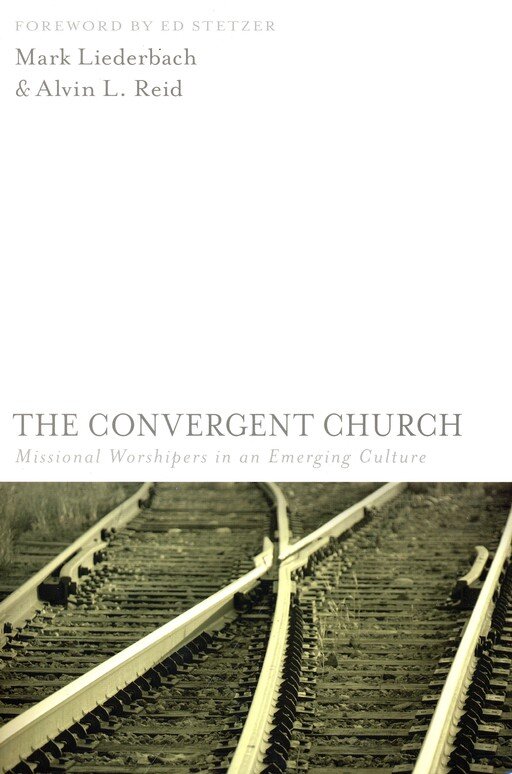Mark Liederbach and Alvin L Reid, The Convergent Church: Missional Worshippers in an Emerging Culture. Kregel Academic and Professional, 2009.
Referenced in:
- Missional Communities – Convergent with Conventional
- Theology of Mission, Proposals and Formulations – Convergent with Conventional
LifeandLeadership.com Summary
This is one of several volumes under the banner of the Convergent. As the term suggests, it seeks to capture some of the better elements of the Emergent church without sacrificing important distinctives of more traditional evangelical churches, thus “Convergent.”
Next to other books in this genre, this and Jim Belcher, Deep Church, are very substantive and well-researched. They offer solid proposals with academic level critique of both the emergent and traditional church, and then propose ministry models that include redemptive features of both approaches. Liederbach/Reid write more as academics and Belcher as a practitioner-scholar.
As the term “convergent” suggests, the model proposed by the authors is a response to “emergent,” with both praise and concern. They say:
“Our concern with the Emerging Church Movement (ECM) lies not with the questions they are raising, the conversations they are generating, or the thinking they are doing. Rather, our concern is with the proper handling of the nexus of cultural relevance and innovation with theological precision and orthodox foundation.” (24)
Part One provides an excellent layout of the development of the emergent church movement (ECM), putting it into the context of the class between modernity (chapter 1) and postmodernity (chapter 2). The authors provide a balanced critique of the emergent movement, believing it has both helpful and harmful tendencies. They also realize that much of the emergent church movement’s assessment of conventional churches is justified, though perhaps not to the extent that ECM takes it. They attempt to “listen to the critiques and ideas of the ECM while being careful not to reject necessary foundations or truths of the gospel message.” They are “convinced that fresh, relevant, and effective ministry requires a convergence between two paradigms of thought and ministry: so-called ‘conventional’ Christian approaches and ‘emerging’ ones.” (22) They expand:
We believe that similar to the production of strong alloys in a steel mill, where two metals are melted, cleaned of imperfections, and forged together, an alliance between these two movements is the wisest course of action. Thus it is our thesis in this book that by taking the best of conventional convictions regarding doctrine and truth and gleaning the best from the ECM concerning cultural engagement and relevance, a Convergent Church can be forged that will provide the most biblically faithful and methodologically effective disposition for the Western church. Thus a convergent Christian is less concerned with reacting to what is wrong with the conventionals in their practice or with fussing about where the ECM misses the point theologically than with identifying the strengths of each of these movements and amalgamating them to bring maximum glory to the King of the universe and make the maximum possible impact on the world for Christ. (25)
In Part Two, the authors suggest what a “convergent” church would like in areas such as worship, mission, doctrine, ethics, social justice, evangelism, discipleship, and church-culture dynamics.
I highly recommend this book, especially alongside Belcher’s Deep Church.
From the Publisher
Bringing together conventional Christianity and the emergent church, Reid and Liederbach illustrate how the two are complimentary.
About the Authors
Alvin L. Reid (Ph.D., M.Div., Southwestern Baptist Theological Seminary) is professor of evangelism, the Bailey Smith Chair of Evangelism, and Associate Dean for Proclamation Studies at Southeastern Baptist Theological Seminary. He is the author of seven books, including Radically Unchurched, Raising the Bar, Introduction to Evangelism, and Evangelism for a Changing World.
Mark Liederbach (PhD, University of Virginia) is associate professor of Christian ethics at Southeastern Baptist Theological Seminary. He has authored several articles in books.
***For additional information on this resource, including reviews, click the bookstore links. Check the reference at page top or the links below for resource guides on related topics.***
See Resource Guides on Related Areas:
- Missional Perspectives, Introduction
- Missional Church Resources, Introduction and Index
- Church Leadership and Renewal, Index to Resources
See Resources on Over 100 Areas of Ministry Leadership:


